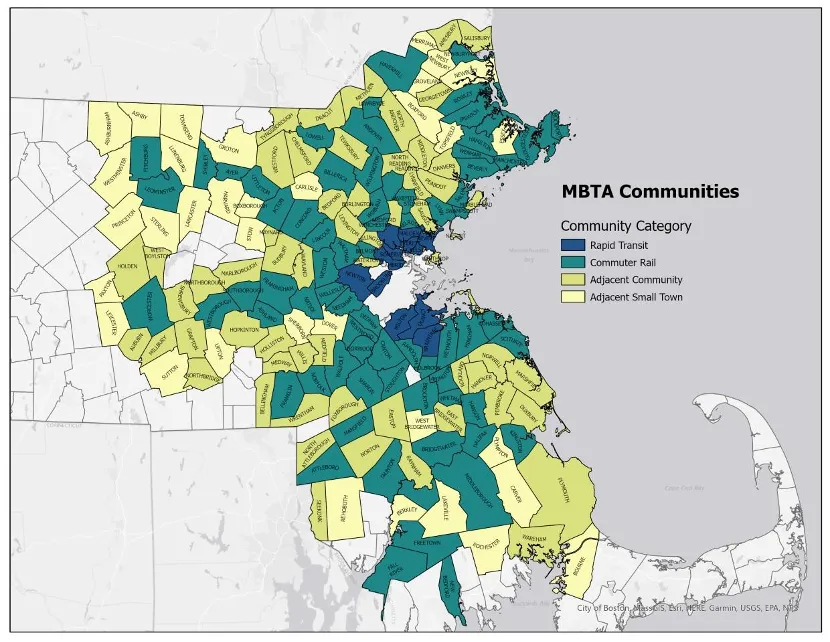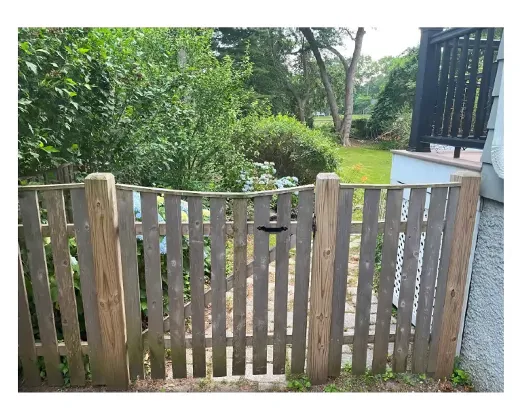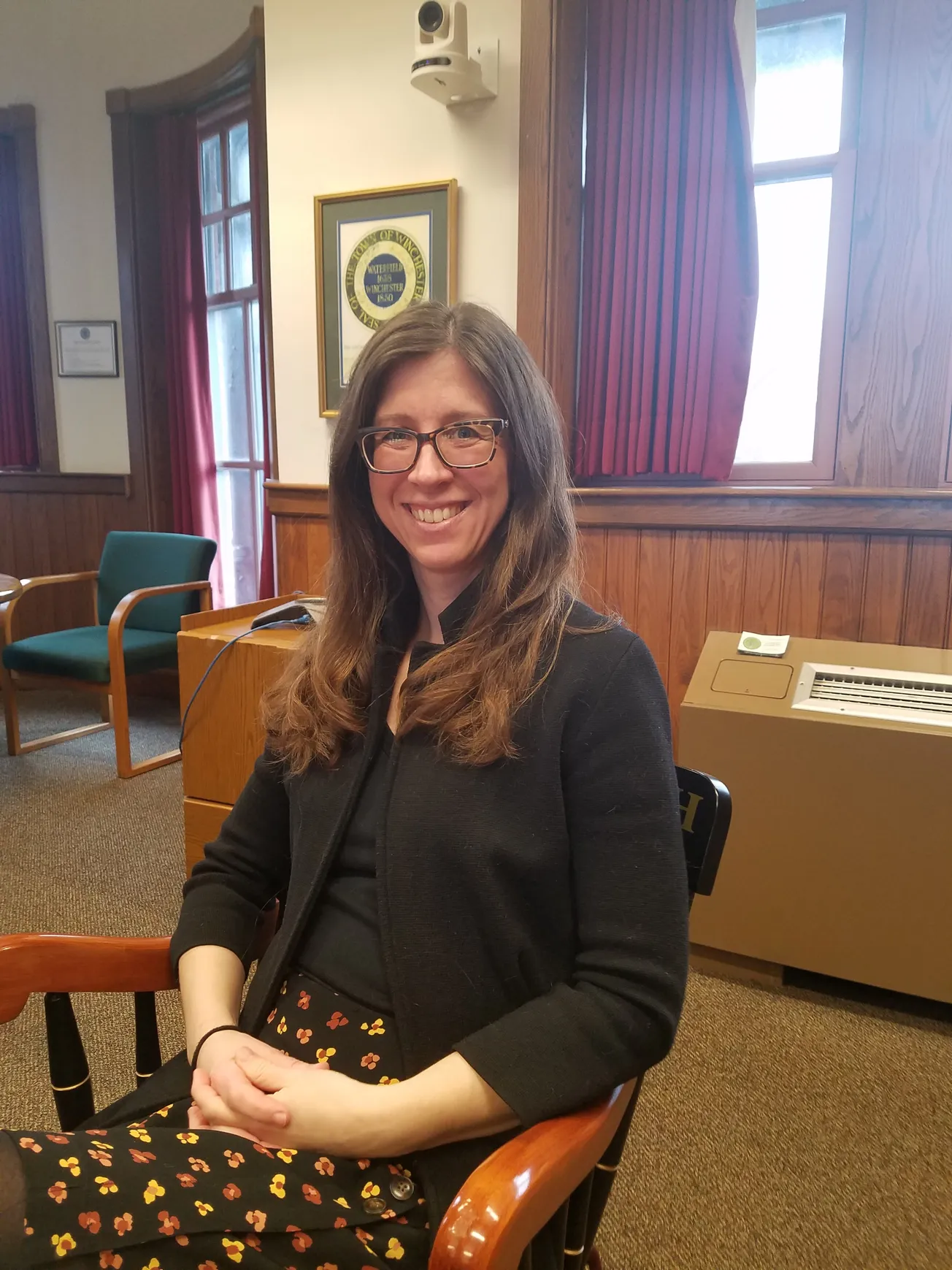Table of Contents
By Richard Rohan, Guest Contributor, Precinct 2 Town Meeting representative, Master Plan Implementation Committee
June 18, 2023. At its June 13th meeting, the Winchester Planning Board heard a presentation from Chair Diab Jerius regarding new state regulations under Chapter 40A Section 3A, the so-called MBTA or Section 3A zoning. A video recording of the meeting can be found at https://www.youtube.com/watch?v=j_VbZBZR36M
According to the Executive Office of Housing and Livable Communities website, “This new law requires that an MBTA community shall have at least one zoning district of reasonable size in which multi-family housing is permitted as of right, and meets other criteria set forth in the statute” https://www.mass.gov/info-details/multi-family-zoning-requirement-for-mbta-communities
Vice Chair Sally Dale warned of “dire financial consequences to the town” if Winchester does not comply with these regulations. Mr. Jerius illustrated this point by referring to another state-mandated housing requirement, Chapter 40B. “Because the town is no longer in safe harbor … we’re no longer a housing choice community; we lost out on the ability to get … at least $100,000 in extra grant money from the state in this last round of funding.” He predicted that, “If we don’t get Section 3A compliance it is even worse than that.” Board member I-Ching Scott mentioned that noncompliance risks not only access to state grants, but based on an advisory issued by Massachusetts’ Attorney General Andrea Campbell, a lawsuit as well.
Unlike the Commonwealth’s long-standing Chapter 40B affordable housing legislation, Section 3A mandates the creation of a zoning district that allows for construction of multi-family units, but does not compel those units to be built. Given Winchester’s size, this new Section 3A district must allow for the potential building of 1220 units in 37 acres, with 50% of the units within a half mile of the Winchester Center MBTA rail station. (Note: the intersection of Clark and Main Streets is the outer edge of that half-mile distance.)
December 31, 2024 is the deadline for Winchester to submit a final compliance application to the state. To that end, the Planning Board is targeting Spring 2024 Town Meeting for the introduction of zoning articles related to Section 3A, and Fall 2024 Town Meeting for passage of zoning bylaws that may not have passed in the spring. The Planning Board’s efforts have been slowed by the absence of a town planner. However, prior to his departure to head up the planning department in Danvers, former Winchester Town Planner Brian Szekely, working with current Assistant Town Engineer Bryan Manter, did submit an action plan to the state in December of last year. Currently 171 of the 175 designated MBTA communities have submitted action plans. The Planning Board has also committed money from its expense budget for consultants to compile different compliance models for the town to consider.
Winchester faces a unique situation to comply with the state mandate for creation of a zoning district that would allow multi-family housing by right, that is, construction that does not require a special permit. Besides currently being without a town planner and planning staff, Winchester Town Meeting has repeatedly expressed a strong desire to retain 1st floor commercial/retail properties. Such mixed-use buildings are not addressed in the Section 3A regulations.
Furthermore, surveys show that Winchester residents are interested in preserving the historic character of the Center Business District. In his presentation to the board, Chair Jerius did note that the Section 3A legislation limits the design review criteria that is allowed when considering a project. “The state wants it to be very clear that you cannot use design guidelines to create obstacles to development… and when you look at our zoning, you look at our design guidelines, there's a lot of discretion in there; there's a lot of well ‘it has to feel this way, it has to add to this character,’ and there's a lot of discretion in there which the state will not allow when it comes to these particular developments.… I think that's the biggest challenge because again… we will easily meet all of the other physical constraints. It's the design review.”
At the conclusion of Chair Jerius’s presentation, board member Nick Rossettos commented, “Yeah it's been an interesting introduction.” John Suhrbier, Chair of the Winchester Housing Partnership Board went further in his comments. “Once you get down into the detail and the weeds, this becomes very, very complex; and if you start fooling around with the compliance model, there's a level of understanding there that requires considerable homework. The challenge for the planning board is to present this in a way to town meeting members … that is easily understood and you don't get lost in the weeds.
The Planning Board is gearing up for a public outreach campaign that could include several appearances at the Winchester Farmer’s Market, throughout the summer. The goal would be to answer questions about the town’s ongoing response to the Section 3A mandates, as well as other board initiatives, including studies on the North Main Street corridor; light industrial zones in the Holton/Cross/ Swanton triangle area; and permitting of the CIVICO 40B project on Waterfield Street.








